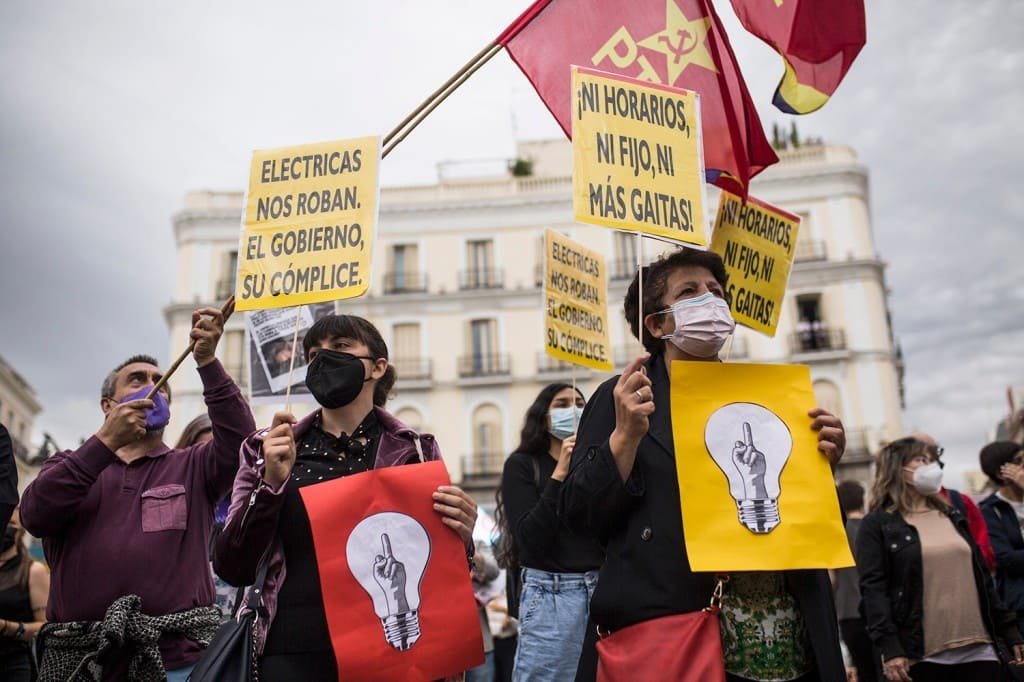Report by Kamgar Ekta Committee (KEC) correspondent

The electricity workers in our country are valiantly fighting against the government’s move to privatise the electricity bit by bit. They know how all over the world, privatisation has badly affected workers as well as consumers at large. The price of electricity has risen unimaginably in Europe over the last two years: by four times over the previous year and 10 times over the last two years.
During the reign of Pinochet, the military dictator of Chile from 1973 to1990, electricity had been privatised, leading to big increases in electricity rates. We must remember that electricity is a vital input for industry, and a rise in electricity costs is thus paid for by consumers, not only directly, but also by increased prices for other commodities.
UK and the EU went down the same path of electricity privatisation and the result for consumers has been the same. In particular, the price of electricity has soared sky high in the EU (European Union) in the past two years. We will see how the excuse trotted out for this is totally unjustified.
A part of the electricity produced in the EU is by using LNG (liquefied natural gas) as a fuel. Over the past few months, Russia has been embroiled in a war with Ukraine and this has affected its supply of LNG to the EU. This has resulted in a sharp rise of between 4 to 6 times in the international prices of LNG, and the EU is not getting enough of it.
This has been given as an excuse for the sharp rise in electricity rates. However this justification is totally false. Only about 17% of the electricity produced in the EU uses LNG as a fuel, but the price of electricity is raised as if all the electricity is produced using LNG! Due to this, the private companies producing electricity using wind, solar, hydro and coal based plants have all made a fortune in this period.
The case of UK is similar. Though it produces 60% of electricity using LNG as a fuel, it imports only half of its requirements, since the other half is produced domestically. And yet the electricity rates there too have been increased sharply, giving the rise in price of LNG as an excuse!
All these countries face very cold winters. When electricity prices rise to these levels, poor consumes have to make a choice between being able to buy enough food and keeping warm (the heaters depend on electricity).
We in India have our own experience of how the government bends backward to help corporates to maximise their profit. When there was coal shortage last year, the price of electricity went up to Rs. 20 per unit in the spot market before public protests forced the government to put a cap of Rs. 12. We also saw how the government ordered all plants to import coal though the government owned companies could have stepped in to overcome the shortage at a fraction of the price, if the government owned Indian Railways had made the wagons for transportation available. However, the government had set its sights firmly on helping the Indian monopolists who own coal mines abroad!
The Electricity (Amendment) Bill 2022 is yet another measure to enrich power monopolies by privatising the distribution of electricity. Big power companies want to take over profitable distribution business of big cities and of big consumers and leave non-profitable distribution to farmers, villages and remote areas to public sector distribution companies. Once they have monopoly control over distribution, consumers will be at their mercy as has happened in Europe and Britain after privatisation.
Power sector employees and consumers want the Electricity (Amendment) Bill 2022 to be withdrawn and all attempts to privatise distribution to be stopped.

